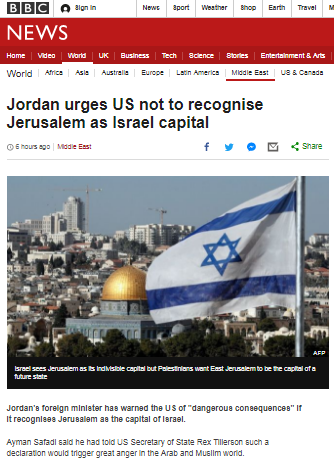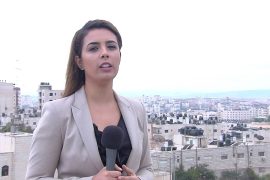As regular readers know, the BBC’s editorial guidelines on ‘War, Terror and Emergencies’ instruct its journalists to avoid unattributed use of the term terrorist and urge consistency of terminology regardless of the story’s location.
“We try to avoid the use of the term “terrorist” without attribution. When we do use the term we should strive to do so with consistency in the stories we report across all our services and in a way that does not undermine our reputation for objectivity and accuracy.
The word “terrorist” itself can be a barrier rather than an aid to understanding.”
The corporation’s accompanying guide on ‘Language when Reporting Terrorism’ similarly states:
“…we don’t change the word “terrorist” when quoting other people, but we try to avoid the word ourselves; not because we are morally neutral towards terrorism, nor because we have any sympathy for the perpetrators of the inhuman atrocities which all too often we have to report, but because terrorism is a difficult and emotive subject with significant political overtones.”
Under the sub-heading ‘Value Judgements’ the same guidance states:
“The value judgements frequently implicit in the use of the words “terrorist” or “terrorist group” can create inconsistency in their use or, to audiences, raise doubts about our impartiality. For example, the bombing of a bus in London was carried out by “terrorists”, but the bombing of a bus in Israel was perpetrated by a “suicide bomber”. […]
Some will argue that certain events are so evidently acts of terror (and, therefore, perpetrated by “terrorists”) that those descriptions are reasonable, and non-judgemental. However, the language we choose to use in reporting one incident cannot be considered in isolation from our reporting of other stories. So to use the word in incidents which we may consider obvious creates difficulties for less clear-cut incidents.”
Fortunately, the BBC’s reporting of the terror attack in London on March 22nd did not comply with those guidelines; in multi-platform reports and on social media audiences were told in clear language what the story was about.
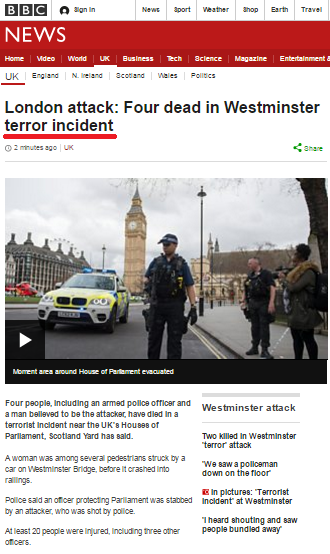
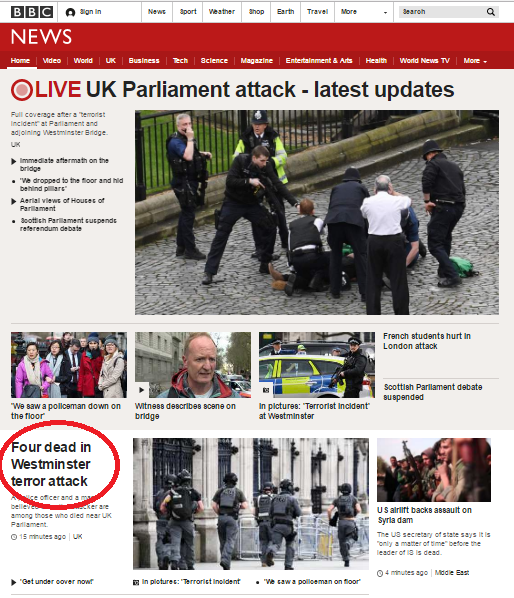
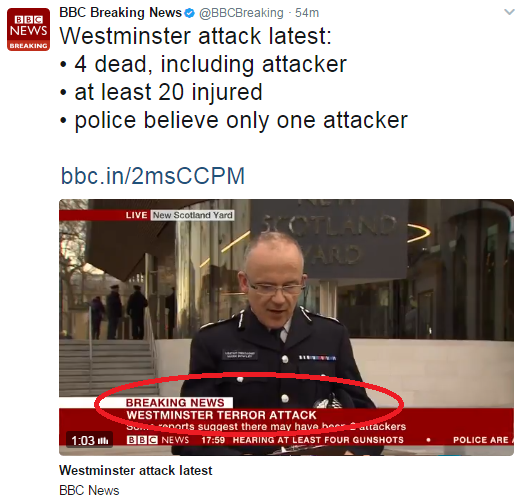
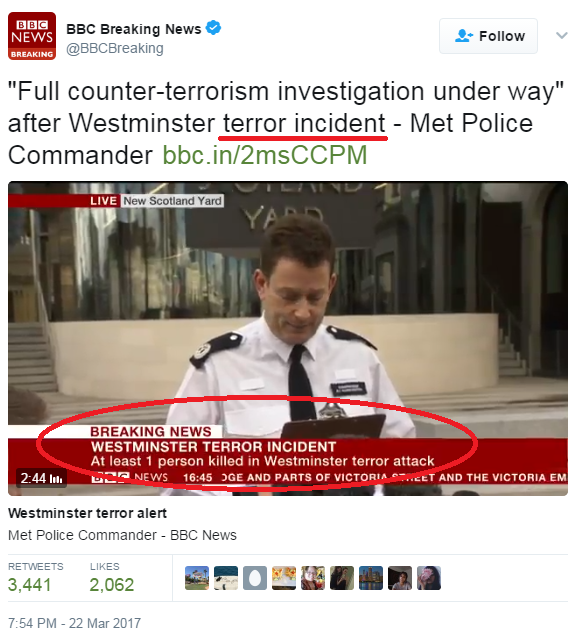
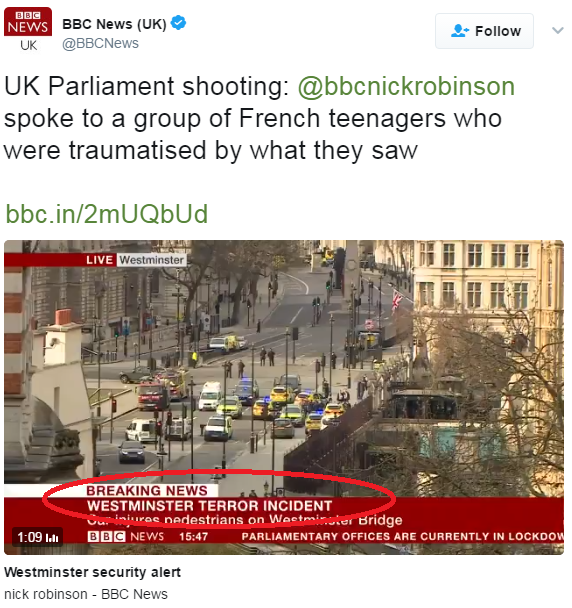
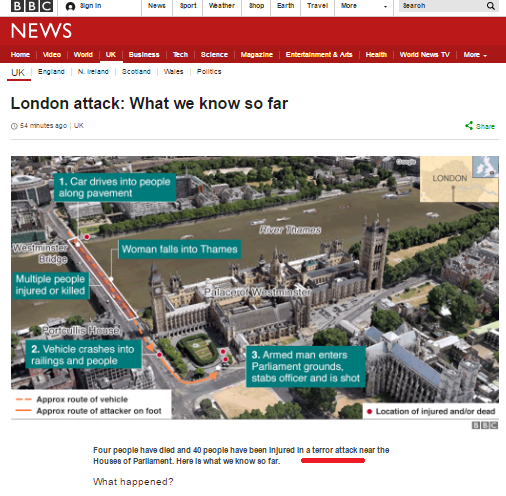
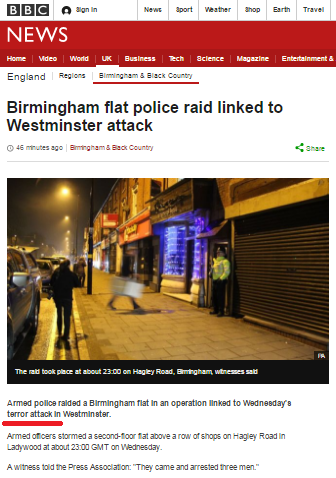
As was noted here (Reviewing BBC reporting of vehicular attacks in France and Israel) when a vehicular terror attack took place in Nice in July 2016, terror attacks using vehicles have not been afforded the same clarity of description by the BBC when perpetrated against Israelis.
When four people were murdered in a vehicular attack in Jerusalem in January 2017, the BBC did stick to its guideline of only using the word terror with attribution and avoiding the term itself.
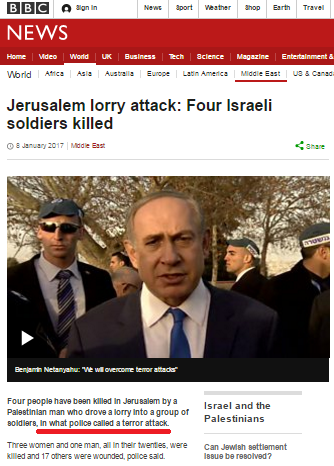
Likewise, the BBC consistently refrains from using the word terror to describe stabbing attacks on Israeli civilians or members of the security forces.
When the BBC does manage to report terror attacks in London, Nice, Berlin, Brussels or Paris using appropriate language, its long-standing editorial policy of eschewing accurate terminology in coverage of Palestinian attacks on Israelis becomes even more discordant and the redundancy of its inconsistently applied guidelines and guidance is highlighted all the more.
Those guidelines are clearly in need of serious review if the BBC wants its audiences to believe that its reporting is impartial.
Related Articles:
Radio 4 gives insight into BBC avoidance of the use of the term ‘terror’ in Israel
BBC Complaints: terror attacks in Jerusalem and Tunisia are “very different”
The BBC, terrorism and ‘consistency’
BBC News finds terror (without quotation marks) in Europe
BBC coverage of Berlin terror attack again highlights double standards

